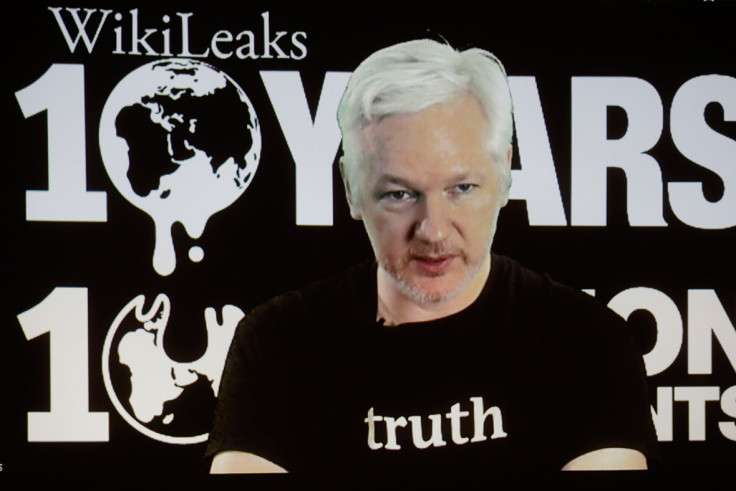WikiLeaks' Julian Assange: Why I love 'fake news'
Assange says spread of fake news narrative only cements WikiLeaks' factual disclosures.

Julian Assange, the founder and editor-in-chief of whistleblowing website WikiLeaks, has said his organisation is "very happy" with the narrative of the fake news phenomenon that has come to define the rhetoric of US president Donald Trump and his attacks on the mainstream media.
Speaking in Sydney, via video-link from the Ecuadorian embassy in London where he lives under political asylum, he claimed the focus on so-called fake news only strengthens his organisation's "pristine" publication history going back a decade.
According to technology website Cnet, he said: "When you read a newspaper article, you are reading weaponised text that is designed to affect a person." He later claimed WikiLeaks' disclosures – from the Podesta leaks to the Yemen Files – do not contain "pre-weaponised knowledge."
He continued: "When the narrative of fake news came out and was then taken off effectively by the neo-liberal press [...] I could see exactly where that was going. I was rather happy about it." He later added: "We have a perfect record of having never got it wrong."
Over the past 12 months WikiLeaks has published tens of thousands of internal documents, including roughly 20,000 emails from inside the Democratic National Committee (DNC). Recently, it released alleged CIA spy orders which green-lit election surveillance in France back in 2012.
The US intelligence community (IC), including the NSA, CIA and FBI, believe that WikiLeaks obtained the cache of hacked emails from hackers working on behalf of Russian intelligence – a claim consistently denied by Assange who has said the data did not come from a "nation state."
During the Sydney event, organised under the banner of 'No more secrets, no more lies', he said: "What is special about WikiLeaks is that it's not just another damn story, it's not just another damn journalist [...] advertising themselves and their position on another damn story."
The buzzword of "fake news" has been used by everyone from Syrian president Bashar al-Assad to UK Labour Party leader Jeremy Corbyn. US president Donald Trump is especially fond of the term, using it to describe media outlets including The New York Times and CNN.
This week, Assange's host country Ecuador is going through its own election process, with at least two of the main candidates pledging to force the WikiLeaks founder out of the embassy within 30 days should they be elected to high office.
"We will cordially ask Señor Assange to leave within 30 days of assuming a mandate. The Ecuadorian people have been paying a cost that we should not have to bear," Guillermo Lasso, one conservative candidate, told media in London last week.
© Copyright IBTimes 2025. All rights reserved.






















